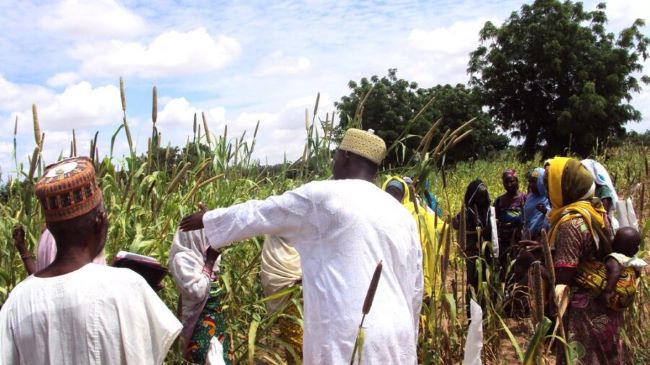Farmers in Gombe State are increasingly anxious about a potential poor harvest due to unprecedentedly low rainfall this season, raising concerns about food security in the region.
An investigation conducted on Friday revealed that many farmers are worried as the harvest period approaches.
Some have resorted to alternative methods of irrigation to compensate for the inadequate rainfall.
The Chairman of the All Farmers Association of Nigeria (AFAN) in Gombe State, Mr. Banyula Hala, attributed the insufficient rainfall to the effects of climate change, which he said has severely impacted farming activities in the state.
“Rainfall is beyond our control, but this year’s scarcity is a significant challenge for farmers and will hinder the government’s food security efforts for this cropping season,” Hala stated.
“In some areas, rice crops have dried up due to lack of water, although those in waterlogged regions have fared better. Overall, we haven’t seen this kind of low rainfall in over a decade.”
Hala also expressed concern about the financial strain on farmers, who are facing high input costs compounded by the lack of adequate rainfall.
He urged the government and stakeholders to intervene urgently to ensure food security, suggesting massive investment in dry season farming as a crucial response.
“The Federal and Gombe State governments must revive the dams in the state to enable irrigation farming, which is the only sustainable solution to the challenges posed by climate change,” Hala emphasized.
A multi-grain farmer in Gombe, Musa Arab, echoed these concerns, noting that the current rainfall situation is unprecedented and poses a serious threat to food availability and farmers’ incomes.
Arab, who has already switched to irrigation farming, said, “For the past two years, I have avoided relying on rain-fed agriculture, focusing instead on drought-resistant crops that need minimal water.”
He also praised federal efforts to promote mechanized farming through the provision of tractors and other farming equipment but stressed the need for more proactive climate change mitigation, such as tree planting and preservation.
A farmer from Nasarawo community, Mr. Daniel Mofunanya, described this season’s rainfall as “grossly inadequate,” even for crops that typically require moderate rainfall.
“I’ve been farming since 1991, and I’ve never seen rainfall this low. It’s alarming, and many farmers are on edge as crops are turning yellow and dying off,” Mofunanya said.
Other farmers shared similar concerns, calling for increased investment in irrigation farming to prevent a potential food crisis in Gombe State and the nation.
NAN


